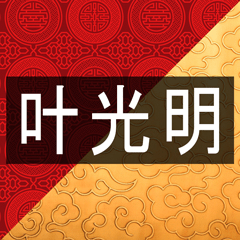The Director's Blog
China, Russia and Ukraine.
Winston Churchill defined Russia as "a riddle, wrapped in a mystery, inside an enigma.” If Churchill were alive today, he might have re-used that phrase to cover China’s attitude to Russia in respect of Putin’s invasion of the Ukraine. Experts on China differ widely in their analysis of Beijing’s policies on the Ukraine situation.
What do we know for certain? We know that Xi Jinping and Putin met in Beijing at the beginning of the Winter Olympics on February 21st, before the invasion. They expressed their relationship together in terms of “a friendship without limits”. Given that there is much economic interdependence between the two nations, the reasons for that are obvious. Both are highly authoritarian regimes accused of harshness in silencing political opposition. Both Russia and China in recent years have seen leadership defined in personal terms, in the persons of Putin and President Xi.
What we don’t know is how much and in what detail in Beijing in February the two leaders discussed the upcoming Ukraine invasion. One view is that Putin told Xi that he was going to invade the Ukraine, but that Xi specifically asked him not to do that until China’s winter Olympic games were successfully finished. The opposite view states that even some of Putin’s war cabinet did not know the invasion was going to take place, so it is highly unlikely that Putin would have shared his intentions with the leader of another nation.
Since the invasion China’s intentions are equally unclear. China abstained from the UN Security Council vote condemning Russia instead of supporting Russia. China has spoken about helping to rebuild the Ukraine. Russian requests to China for military help have not, as far as we know, been granted. China has continued to import Russian oil, because there are no immediate sanctions restricting that, but has partially aligned with Western banking sanctions against Russia. However we interpret that, it certainly does not seem to be “a friendship without limits.”
What then is China’s position? One view states that China deliberately deceived the Russians for its own advantages. Having promised support for the Russian invasion in the meeting in February in Beijing, China has adopted a strategy which is designed to see Russia either lose the war, or come out of it considerably weakened. The best outcome of the Ukraine invasion for Beijing is a weakened, isolated, and dependent Russia.
Another view states that China is not sure what to do in this situation. Ian Johnson holds this view: “China’s response (to the invasion) was mind-numbingly predictable: (saying that) the West is to blame, sanctions are counter-productive, and ‘all sides’ should use restraint… China (was) simply caught in a dilemma — forced to mouth platitudes because it was shocked at Russia’s behaviour but unwilling to criticize its closest friend… The reality is that China is so obsessed with a narrow set of issues that it is unable to be more than a character actor on the international stage, appearing in a few specific roles but otherwise out of its depth.”
“A riddle, wrapped in a mystery, inside an enigma.” We don’t know whether China is running a master plan to make Russia a client state or whether it’s simply uncertain what position it should take, therefore it takes none. Whatever the facts are, that is simply one more urgent reason to pray for this whole situation.
Pray for the right voices to be heard amongst the Chinese leadership in its approach to the Ukraine crisis.
Give thanks that the Lord is fully aware of China’s hidden policies in this and in all matters and that He is the Lord of history.

